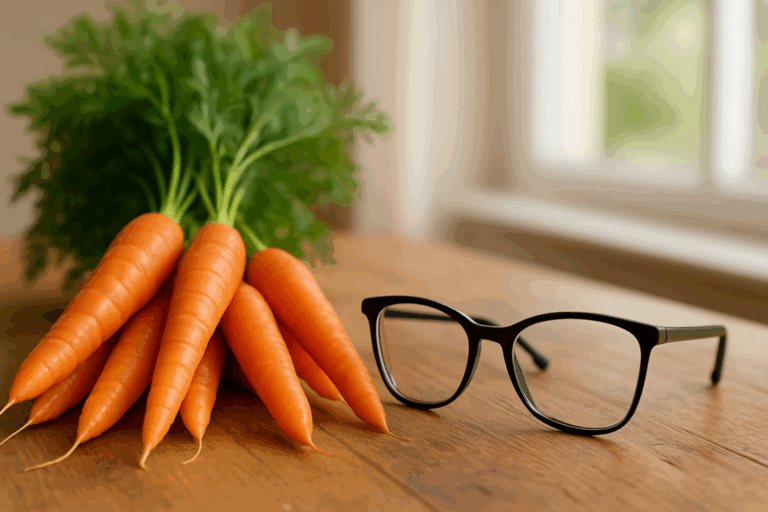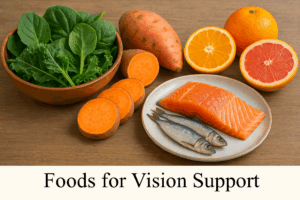Carrots have long been hailed as a superfood for eye health and vision support. But is this reputation truly earned, or just folklore passed down through generations? In this article, I’ll explore whether carrots (and vitamin A) genuinely support your vision, backed by science, wellness tips, and healthy habits you can apply today.
🌟 The Truth About Carrots and Eye Health
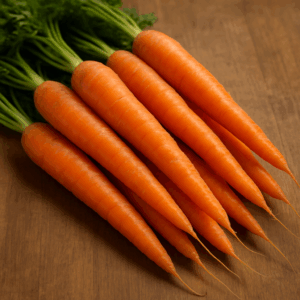
Carrots are rich in beta-carotene, a type of antioxidant that converts to vitamin A in the body. Vitamin A is essential for maintaining the health of your retina, especially your ability to see in low light. But it doesn’t stop there — carrots contribute to an overall vision support strategy.
How Vitamin A Supports Vision:
- Maintains the function of photoreceptors in the retina
- Helps prevent night blindness
- Supports tear production for moist, healthy eyes
However, you don’t need to eat buckets of carrots to get the benefits. Mindful eating, hydration, and a variety of natural eye care approaches are key.
🌿 Can You Rely on Carrots Alone?
While carrots play a role in eye health, they are just one piece of the wellness puzzle. An over-reliance on carrots won’t protect against major conditions like macular degeneration or cataracts.
What You May Be Missing:
- Lutein and Zeaxanthin from leafy greens to protect against oxidative stress and promote macular health
- Omega-3s from fatty fish for tear health and eye comfort
- Zinc and Vitamin E for healthy optic nerve function
This is why I always promote a colorful, antioxidant-rich diet through AllHealthFit1.
🌟 Nutritional Powerhouses Beyond Carrots
These vision-supportive foods go beyond just beta-carotene:
- Spinach & Kale: Rich in lutein and zeaxanthin for macular protection
- Sweet Potatoes: Offer vitamin A for healthy retinal function

- Salmon & Sardines: Supply anti-inflammatory omega-3s that support tear production and reduce digital eye strain
- Citrus Fruits: Provide vitamin C for strong capillaries and circulation
Pairing these with healthy fats helps improve nutrient absorption and enhance natural eye care.
🛒 Amazon Affiliate Disclosure: As an Amazon Associate, I may earn from qualifying purchases. This means if you click an Amazon link and make a purchase, I may earn a small commission — at no extra cost to you. Your support helps me continue sharing helpful, science-backed wellness resources through AllHealthFit1. 💚 Thank you!
💊 Do You Need a Supplement Like Lutenol?
Even with the best eating habits, it can be difficult to get everything your eyes need. I recommend Lutenol, one of the best eye supplements I’ve researched.
Lutenol Benefits:
- Lutein and zeaxanthin for blue light protection and macular health
- Zinc and vitamin A to support vision at night and neurological health
- Bilberry and quercetin for improved circulation and reduced strain
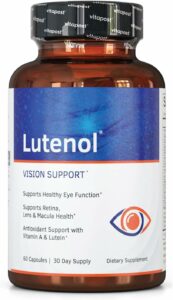
💊 Get yours on Amazon Today! Explore a trusted option in eye supplements!
🚮 Habits That Harm Your Eyes and How to Break Them
Vision loss and digital eye strain aren’t just from aging — they stem from everyday habits. Here’s what to look out for:
- Too much screen time: Leads to reduced blink rate and retinal fatigue. Follow the 20-20-20 rule.
- Skipping sunglasses: Exposure to UV and blue light can harm delicate eye tissues.
- Poor hydration: Causes dry eyes and blurry vision from tear film instability.
- Touching or rubbing eyes: Increases risk of infection and corneal abrasion.
Practice these healthy habits daily to protect your eyes and promote well-being.
💡 Frequently Asked Questions
1. Do carrots improve night vision?
Yes, but mostly if you’re deficient in vitamin A. For those with adequate levels, there are no supercharged effects.
2. How much vitamin A do I need daily?
Adults need 700–900 mcg. One cup of chopped carrots can provide your full daily requirement.
3. Can too much vitamin A be harmful?
Yes. Overconsumption (especially from synthetic sources) can be toxic. Whole foods are safest.
4. Are eye supplements necessary?
If your diet lacks specific nutrients for macular health or digital strain, supplements may help. Always consult your provider.
5. What are quick, eye-healthy snacks?
Hard-boiled eggs, almonds, or blueberries — all packed with nutrients that support eye function and reduce fatigue.
🔵 AllHealthFit1 ProTip: ❤️🏃♀️
Don’t rely solely on carrots. Think of them as a supportive teammate in your eye wellness journey. Balance your nutrition, prioritize hydration, and protect your vision like any other vital organ. 👁️ Want to learn more about keeping your eyes healthy?
Dive deeper into expert-backed tips and wellness strategies in the article here! Click here to continue reading
AI Disclaimer: Portions of this article were enhanced using AI tools and finalized by Dr. Marjorie DiCarlo, M.D., Ph.D., M.P.H. to ensure clinical accuracy and practical guidance.
️⚠️ Medical Disclaimer: This content is for educational purposes only and does not replace professional medical advice. Always consult your healthcare provider for vision-related concerns.
📚 References
- American Academy of Ophthalmology – Protecting Your Eyes from Screen Time
- Harvard Health Publishing – Why Blue Light is Bad for Sleep
- National Eye Institute – Keep Your Eyes Healthy
📬 Enjoyed This Post?
Don’t miss a beat — get science-backed wellness tips, digital eye strain solutions, and AllHealthFit1 updates delivered to your inbox. ➡️ Subscribe to the “Healthy You Insider” newsletter
In Health and Wellness,
Dr. Marjorie DiCarlo, M.D., Ph.D., M.P.H.
🌱 More Wellness Reads 🌱
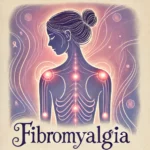 Is There a Correlation Between Osteomalacia and Fibromyalgia?
Is There a Correlation Between Osteomalacia and Fibromyalgia?
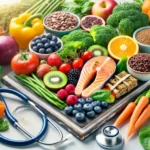 🍃10 Empowering Tips for Healthy Eating to Manage Hypertension🍃
🍃10 Empowering Tips for Healthy Eating to Manage Hypertension🍃
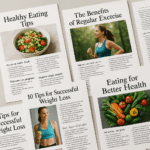 🌿AllHealthFit1 Health and Wellness Blog Archive🌿
🌿AllHealthFit1 Health and Wellness Blog Archive🌿
 Mastering Diabetes for a Healthier Life: Essential Facts You Need to Know
Mastering Diabetes for a Healthier Life: Essential Facts You Need to Know
 🌱 Why Indoor Allergies Feel Worse at Night — And What You Can Do About It 🌱
🌱 Why Indoor Allergies Feel Worse at Night — And What You Can Do About It 🌱
 🍃 5 Everyday Habits That Secretly Harm Your Eyes and How to Fix Them! 🍃
🍃 5 Everyday Habits That Secretly Harm Your Eyes and How to Fix Them! 🍃
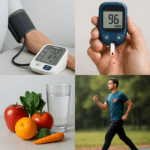 🌱 Stay Ahead of Silent Killers: Monitor Blood Pressure, Sugar & More 🌱
🌱 Stay Ahead of Silent Killers: Monitor Blood Pressure, Sugar & More 🌱
 🌿 Backed by Science: Latest Research on Stroke Prevention You Can Trust 🌿
🌿 Backed by Science: Latest Research on Stroke Prevention You Can Trust 🌿
Powered by YARPP.
